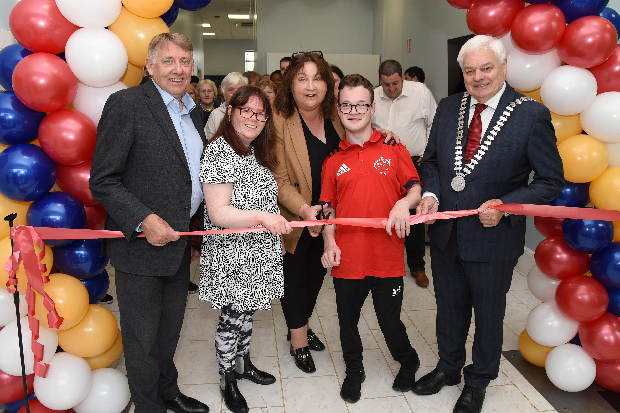Welcome to this week’s issue of The Week in Medicine – a round-up of all the happenings in the world of Irish medicine
As a longtime fan of Benjamin Franklin – whose long and fruitful life has been an inspiration to many – I was intrigued to see Jamie Raskin referring to him in the U.S. House of Representatives. Raskin spoke about Franklin and his life – and in particular this one incident where Franklin loaned a sum of $100 to a friend, Josiah. He noticed from that point onward, his friend was avoiding him, hiding behind trees and buildings when Franklin approached, or so the founding father noted in his diary.
So Franklin confronted the man and asked him if he had any chance of getting his money back. His friend informed him that the money had been invested in a profitable venture but could not be extracted from that busines without penalties. Franklin then asked about interest on the loan.
Josiah informed him that it was against his religion to pay interest – which would really have annoyed Franklin as he believed religion was often an excuse for doing the wrong thing, which was precisely what was happening in this instance.
He said: “So what you’re saying, Josiah, is that it’s against your principles to pay me the interest, and against your interest to pay me the principle?”
Franklin was an amazing man and the biography by Isaacson is probably the best if you want to know more about him. He organized the first volunteer fire department, the first lending library, spoke five languages, almost killed himself discovering the nature of electricity, invented a glass harmonica for which Beethoven and Mozart wrote music, tried to cure a man with paralysis with electric shock (a therapy which might get you arrested today) and was skilled chess player. All this with only two years of formal school.
It just goes to show what humans might achieve if it weren’t for the distraction of television.
************
Ireland’s Fittest Family Doctor Training Scheme is probably the longest title for a bunch of runners who just completed the Great Limerick Run. Each runner received €50,000 from JP McManus for taking part, with actual Limerick people receiving €100,000 for simply walking the route. (That information wasn’t included in the press release, but as a ‘Citizen Journalist’ I’m allowed to infer facts.)
Here’s the pictorial evidence – from the left the runners are Dr Kevin McMahon, Dr Ray O’Connor (Asst. Scheme Director and writer for Irish Medical Times), Dr Eoin Kyne, Dr Hannah Mulholland, Dr Sarah Mullarkey and Dr Sarah Linnane. Missing from the picture are Dr Maureen Noctor and Dr Tess O’Sullivan (both Assistant Scheme Directors), Dr Stephen Donohoe and Dr Maria Smyth. They all completed the half-marathon, I am told.
But – and it’s not a competition – Prof Donncha O’Brien, Consultant Neurosurgeon at Beaumont Hospital and Blackrock and Hermitage Clinics in Dublin ran the 42nd Belfast Marathon to raise funds for Dublin and Cork Simon and Cork Penny Dinners.
Minister Stephen Donnelly told IMT there was no need to panic – the HSE was not running out of doctors, as had been claimed, the fact of the matter was that doctors are simply out running. He added that he too would be running again soon (with less optimism) in Wicklow in a door-to-door competition.
************
Google launched its new family of Artificial Intelligence (AI) models focused on the medical area earlier this month. Dubbed Med-Gemini, these AI models are not available for people to use, but the tech giant has published a pre-print version of its research paper which highlights its capabilities and methodologies. The company claims that the AI models surpass GPT-4 models in benchmark testing, says the tech giant. One of the notable features of this particular AI model is its long-context abilities that allow it to process and analyse health records and research papers.
What this all means is less certain. Artificial Intelligence will change medicine, like it will change many other aspects of our lives, but in the context of Ireland not even having individual patient numbers (and very few clinical trials) we are a bit behind the curve of the greatest innovation in technology of our time. But no matter where we are, AI is coming to medicine. Let’s hope it’s better than some of the jokes invented by it:
What do Alexander the Great and Winnie the Pooh have in common? The same middle name.
And:
Why do seagulls fly over the sea?
Because if they flew over the bay, they’d be bagels!
Of course it’s early days. Already, AI machines are being taught to interact with humans and to use their far better recall and memory speed to do effective ‘Stand-up’, but will anyone go to see a machine perform?
************
Fair play to the Cope Foundation who have opened a new Community Hub in Mallow, which will support up to 25 people to live a life of their choosing, close to their home. The not-for-profit voluntary organisation, which supports over 2,800 children and adults with an intellectual disability and/or autism in over 70 locations throughout Cork, now operates 13 Community Hubs in the city and county.
The Mallow Community Hub, located at Market Square in the town, has three staff members and is kitted out with a kitchen, computers and recreational spaces to allow for a wide variety of activities including yoga, swimming, pottery, drama and fishing. It is also a place where people can learn money management skills, independent living skills and discover employment and further education opportunities.

Pictured at the opening of the Cope Foundation Community Hub in Mallow were from left, Sean Abbott, CEO, Cope Foundation ; Shaunna McGowen, Euan Pickard. The Minister of State at the Department of Children ; Equality ; Disability ; Integration and Youth, Anne Rabitte, T.D. ; Euan Pickard and Cllr. Frank O’Flynn, Mayor of County Cork. Pic: Adrian O’Herlihy
The centre was officially opened yesterday (May 13) by Anne Rabbitte, Minister of State at the Department of Health and at the Department of Children, Equality, Disability, Integration and Youth; in the presence of Cope Foundation staff, people supported by the organisation, Mayor of County Cork Cllr Frank O’Flynn, local TDs, Angela O’Neill, Head of Disability Services, HSE and members of the business community of Mallow. Well done to COPE and all concerned. ![]()
